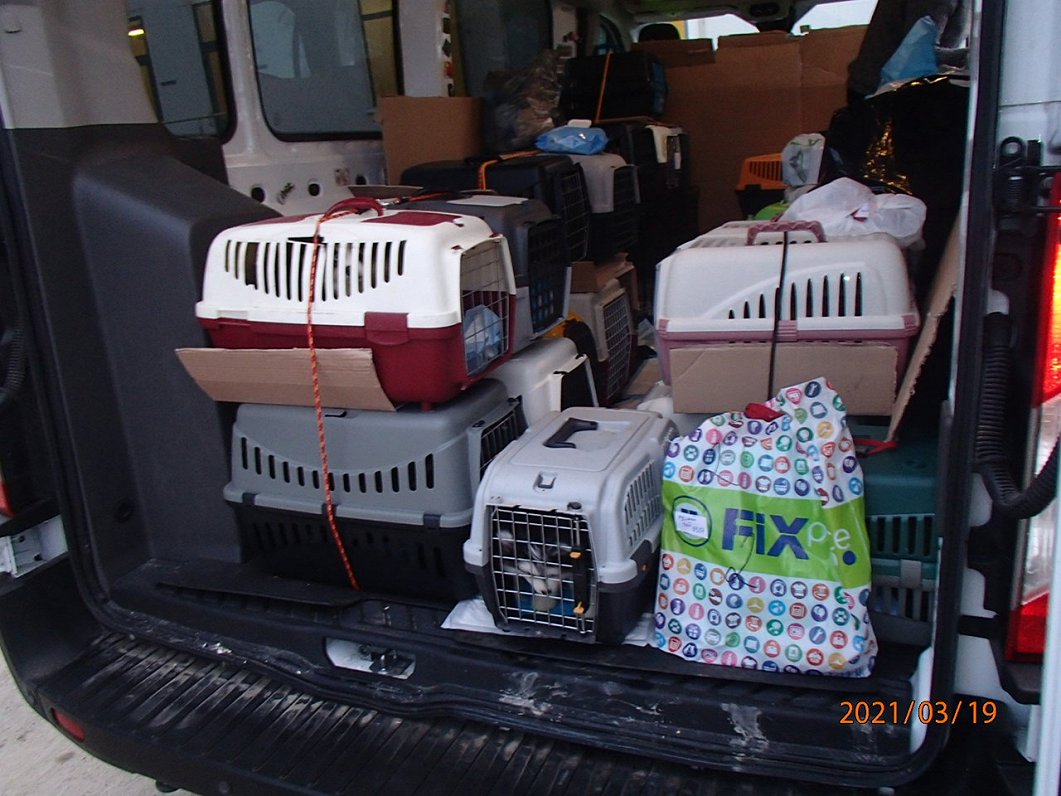The demand for pets during the limits of Covid-19 has grown so much that Latvian shelters and breeders are no longer able to satisfy the demand, observed the Latvian Association of Veterinarians. Consequently, animals purchased from illegal buyers and importers, often in poor health, are increasingly seen by vets.
"We mostly find these cases when the animal is ill. Similarly, in some cases, animals do not recover after illegal transport because they are cold, have not eaten enough and have dehydrated. If, in the past, we as professionals felt that people themselves were outraged by such situations in which they were defrauded, then, unfortunately, we now see people deliberately buying an animal illegally.
"Perhaps they don't want to hear that the puppy has travelled in a truck between some boxes, but that is what this means, because the puppy at the age of two months cannot enter Latvia in a legal way," said Lita Konopore, spokeswoman for the Association of Veterinarians.
The association calls on buyers to act responsibly by choosing a registered place to purchase baby animals to avoid buying sick and too young animals.
''These unvaccinated puppies, who come with or without fake documents, can introduce a variety of infectious diseases as parvovirus. Often people do not even know what vaccinations have been carried out in advance for that animal, and we cannot take decisions on the way forward," Konopore said.
The PVD confirmed that imports of domestic animals on the Russian-Belarus border have increased since the beginning of last year and welfare violations have been recorded more frequently. Last year there were 20 cases when animals were returned to the country of origin and there have already been five such cases in March, said Iveta Zemniece, specialist at the Border Control Department of the PVD.
The PVD recalls that both when a dog or cat enters the European Union with its owner, or when the animal is a commercial consignment imported by an animal carrier, animal welfare requirements must be met: cages must be large enough, there must be no more than one animal in one cage, sufficient ventilation, feed and water must be provided.
When purchasing a dog or cat born in Latvia, the buyer must ask for the animal's passport and the animal must be registered in the Animal Register. Any legally imported animal must be at least three months and 21 days old and the importer must be able to produce a certificate issued by the official veterinary service of the country of origin for the animal's travel.




























